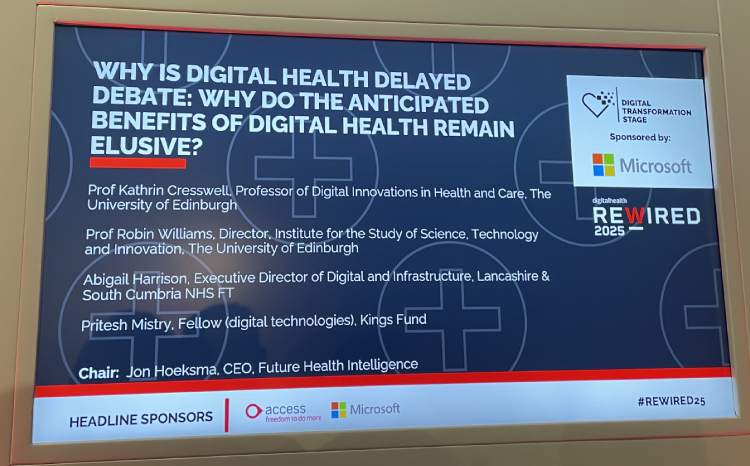ICS success depends on ‘baseline’ digital maturity across organisations
- 6 April 2021

A “baseline” of digital maturity across all organisations is needed for Integrated Care Systems to deliver more joined up care, a healthcare lawyer has said.
Integrated Care Systems (ICSs) would be embedded in law under new government plans to overhaul the NHS to enable the health service to better use technology to support staff and patient care.
Hamza Drabu, commercial law partner at DAC Beachcroft, said putting ICSs on a statutory footing could encourage similar levels of digital maturity across regions but only if the right funding and governance was in place.
He told Digital Health News an ICS capital plan “might mean that some of the priorities for one trust might not be front of the queue”.
It could result in organisations being left behind on digital transformation, further widening gaps between those who have received funding to boost their use of technology and those who have not.
Drabu, who leads DAC Beachcroft’s medtech team, told Digital Health News: “If you’re looking at technology on a system-wide basis then there should be a baseline that everyone would need to be reaching.
“You would hope that, if anything, it [the creation of ICSs] encourages more harmonisation and everyone to have a more similar level of maturity in terms of digital.
“Whether that really happens or whether one particular player in an area has much more sway and ends up getting much more of the slice out of the cake I guess remains to be seen, but that would go against the grain of everything an ICS is about.
“The flip side of that is, do you end up cutting off the tulip heads trying to level things out in a way that actually holds back some of the front runners.”
‘Replicate good work’
Work to ensure the digital divide between organisations doesn’t expand should start with capitalising on good work that has already been achieved, Drabu said.
“Where possible, replicating stuff that’s worked well and being able to roll that out in a way that’s hopefully less bureaucratic and more cost-effective,” he said.
“With any IT deployment project there’s a huge part around acceptance testing and bedding it down, and that needs a huge amount of financial resource but also human resource on the implementation of it.”
For Drabu it goes back to the “basics” of digital maturity and understanding what’s worked well, and what hasn’t.
“By now we should be in a position where we’re also able to effectively share data across organisations to understand the impact of different interventions in different parts of the system,” he added.
The upcoming NHSX ‘What good looks like’ programme aims to set out guidance for good digital practice to help frontline leaders undertake digital transformation in their organisation.
Led by NHSX CIO Sonia Patel, the programme will create a model for digital maturity to allow the NHS to assess providers and systems, generate national insights and create the right solution for their local area.
A similar aim to spread best practice was embedded in the multi-million-pound Global Digital Exemplar (GDE) programme.
In February 2019 the first wave of GDE blueprints were released, which aimed to help organisations learn from trusts that had successfully implemented digital programmes.
But measuring their success and uptake has proven difficult. One year on from the first blueprints being published, trust leaders involved in the programme told Digital Health News it had “hit the usual NHS problem of low adoption”.
They said it was unclear how many trusts had implemented new systems based on the blueprints, which were designed to help fast-follower trusts boost their digital maturity. But there were “good conversations” between GDE trusts and other organisations being had.
Replacing Clinical Commissioning Groups (CCGs)
Plans to put ICSs on a statutory footing will see a reduction in CCGS as the systems take on majority of commissioning functions.
Embedding ICSs in law aims to “remove legislative barriers to integration across health bodies and with social care, to help deliver better care and outcomes for patients through collaboration” the papers add.
The NHS Long Term Plan sets ambitions for all parts of the health and care system to be working together as ICSs from April 2021. NHS England and Improvement board papers from November 2020 revealed plans for all CCGs to merge across their ICS boundaries by April 2022 with their functions “absorbed” to become “core ICS business”.
NHS England and Improvement’s priorities and operational planning guidance for 2021/22, published in March 2020, confirmed this target.





1 Comments
Integrating mental health services into ICS is ignoring the reality of the need for a robust, stand-alone service with significantly increased staffing levels across all disciplines – consultants to community psychiatric nurses. Quality as well as quantity.
A genuine integrated health and social care workforce.
David Jordan
Comments are closed.